Drawing and Painting majors are given the support and opportunity to craft a degree that fits their research interests and professional aspirations.
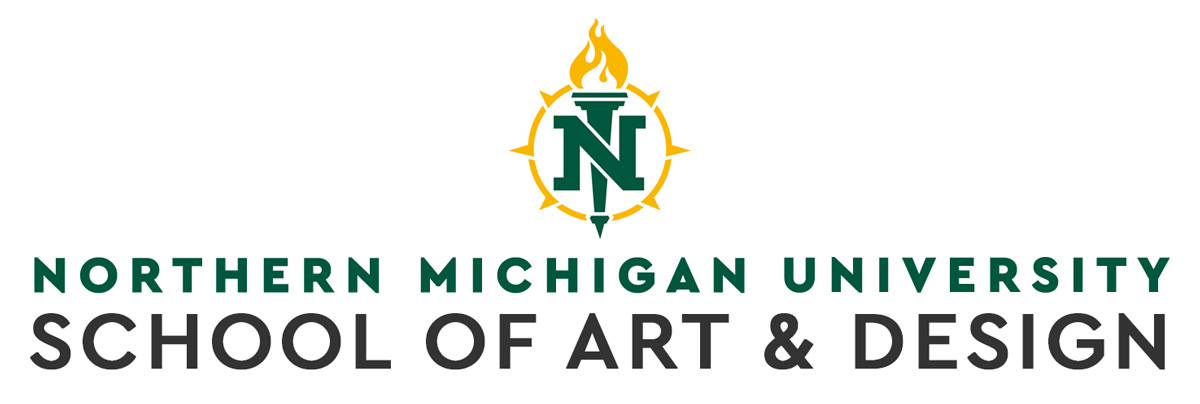

DRAWING & PAINTING



The Drawing/Painting
Major at NMU
Foundational classes help students establish techniques in acrylic, oil, collage, and mixed media. Color and compositional relationships are explored in abstract and representational approaches. Ideation, problem-solving, and conceptual practices are introduced at the 100 level and refined in upper-level courses, where students learn to invest in their creative practices and connect research to meaning.
A junior-level review of a student’s artistic and professional portfolio emphasizes stylistic and conceptual consistency. This review prepares students for capstone and 400-level courses emphasizing professional practices and intentions–eventually preparing them for an exhibition of their work in the DeVos Art Museum. Students work with advisors and a faculty mentor from foundational to capstone courses, allowing for a customized and student-centered approach to maintaining a creative practice beyond Northern.
The Painting Student Pursues a Development of an Identity with Materials
Click to Learn MoreDrawing/Painting Studio
The Drawing and Painting studio is a busy, dynamic learning space. The room boasts excellent ventilation, including a designated area where spray paint and other aerosols can be safely used. The studio is equipped to handle a wide range of media and also includes a small woodworking area for preparing canvases, frames, etc. Standing and flat storage areas are available throughout the space. Designated studio monitors are present whenever the studio is open to ensure safety.


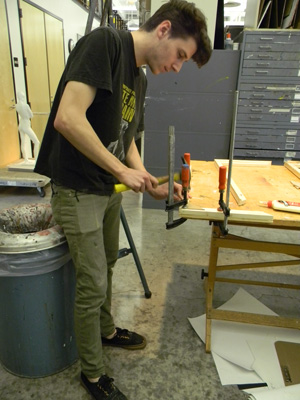
The Painting Studio is a Large Multipurpose Room with Individual Student Supply Carts
Click to Learn MoreDrawing/Painting Faculty
click to open/close
Tim Cleary
Associate Professor
BFA Miami University, Oxford Ohio
MFA Pratt Institute, Brooklyn New York
Tim Cleary grew up standing over a compass rose on the edge of Lake Michigan. Indeed, some say he is there, still. He painted as a child and has found various ways to maintain the habit, including but not limited to undergraduate degrees in painting and photography at Miami University and an MFA from Pratt Institute. He has received various grants, awards, and residencies as an artist and educator, including a PRIME grant, a Research and Creative activity grant, and a Technology grant. Tim collaborates relentlessly, coordinating course projects and content with professors in Philosophy, Biology, German, and French.
WEBSITE
timclearyart.com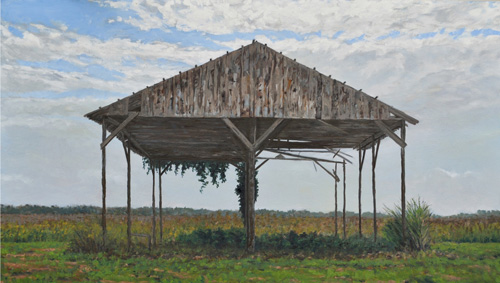
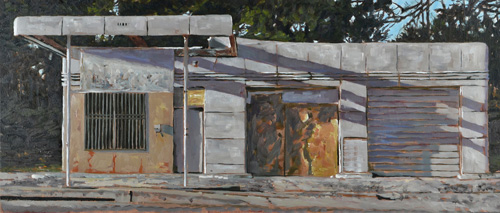
Drawing/Painting Courses
click to open/closeAD 220A Drawing/Painting Foundations: Acrylic
4 credit hours
Offered: Winter
An introductory drawing/painting course focusing on properties of, and techniques for, controlling acrylic paint, both abstractly and representationally. Foundational principles in composition, color, and observation are introduced.
AD 220B Drawing/Painting Foundations: Oil
4 credit hours
Offered: Fall
Introduction to foundational properties and techniques of oil paint as a medium. Emphasis is placed on representational techniques and subject matter. Approaches to developing personal style and content are introduced.
AD 320: Drawing/Painting: History and Influence
4 credit hours.
Offered: Fall, odd numbered years
Prerequisite: At least two of the following: AD219, AD220A, AD220B, AD319A, AD319B; or instructor permission.
Students will produce several bodies of work that demonstrate understanding of the stylistic, historical, and conceptual context of their studio practice within the history of painting and drawing. Students may produce work in any combination of drawing and painting media. Emphasis is given to developing a personal style through self-directed research.
AD 420 Drawing/Painting: Seminar
4 credit hours
Offered: Winter, even numbered years
Prerequisite: At least three from: AD219, AD220A, AD220B, AD319A, AD319B, AD320, AD419; or instructor permission.
Students will plan, research, and execute self-driven projects. The content of these projects will follow consistent and coherent themes determined by the student. Content will be supported by readings, discussions, writing, critiques, and guided exposure to professional opportunities in the field.
AD 431 Portfolio: Illustration & Painting
4 credit hours
Offered: Winter, odd numbered years
Prerequisite: AD 303, and at least two from AD319A, AD319B, AD320, AD419, or AD420; or instructor's permission
Through individualized projects, students will refine their technical skills, artistic vision, and professional presentation to create portfolios and promotional materials that reflect their career goals and unique strengths.
Drawing/Painting FAQ
click to open/closeWhat is the difference between a Bachelor of Fine Arts in Drawing/Painting and a Bachelor of Arts or Bachelor of Science?
The BFA is considered the professional studio degree, as it has more credits in the Drawing/Painting concentration and more specific requirements in studio, such as Sculpture, Drawing, Metal and Woodworking. The BFA also has more art history requirements and does not allow a minor. The BA and BS degrees provide students with the option to pursue a minor such as a major in Drawing/Painting and a minor in Music (20 credit hours). The BA also has a language requirement.
Does the school require a portfolio review before you are accepted into our programs?
If you are accepted into the university you are able to pursue a degree within the school. However, you can present a portfolio to the professor in your studio area who will use your work to gauge whether you should receive advanced placement credit (replaces course and credit hours) or a waiver (replaces course but not the credit hours) or at what studio level you should begin. This portfolio can be reviewed during a campus visit or with a faculty member during an office hour during the semester. Although there is no required portfolio review to enter the program, Art and Design majors must participate and complete a faculty review of their portfolios (Individual Art Review AD 303) which is scheduled the twelfth week of each semester.
What will we need for supplies or equipment?
Students at the introductory level pay a share, which provides many items used by the students, such as canvas and gesso. After the 200 level class, all students are responsible for purchasing their own supplies. The university provides equipment items such as a chop saw, airbrushes, hand tools, etc.
What are the prospects for employment with a degree in Drawing/Painting?
Many students go on to graduate studies and seek assistantships to defray costs. Others usually seek day jobs in art related situations (sign-shop) and pursue their own work in their free time or seek gallery representation. Their long-term goal is to sell their work in a gallery and live off sales of paintings. Many also pursue jobs as illustrators, teachers, portrait and mural painters.
Will we be able to paint in our first semester?
YES! Students will take an introductory course in painting their first semester.
How large are the classes?
Introductory classes at the one and two hundred level are from 20-25 students. Upper level may range from 8-15 students.
Do we need experience in painting to take the class?
NO, beginning classes assume the student has no prior experience.
What type of materials are used?
Students work primarily with acrylics, oils, and have a choice if working exclusively with one media.
Are there scholarships for incoming freshman?
The school offers the High School Freshman Scholarship (four $1000 awards) that is available each year with applications due in April.
See the web for details
Scholarship Information





















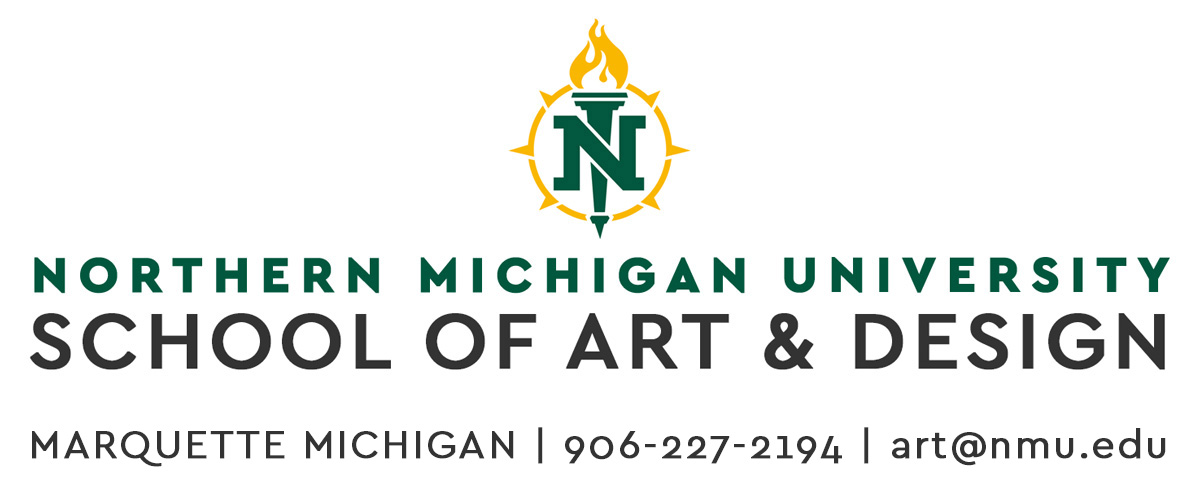
 NMU is an
NMU is an 



